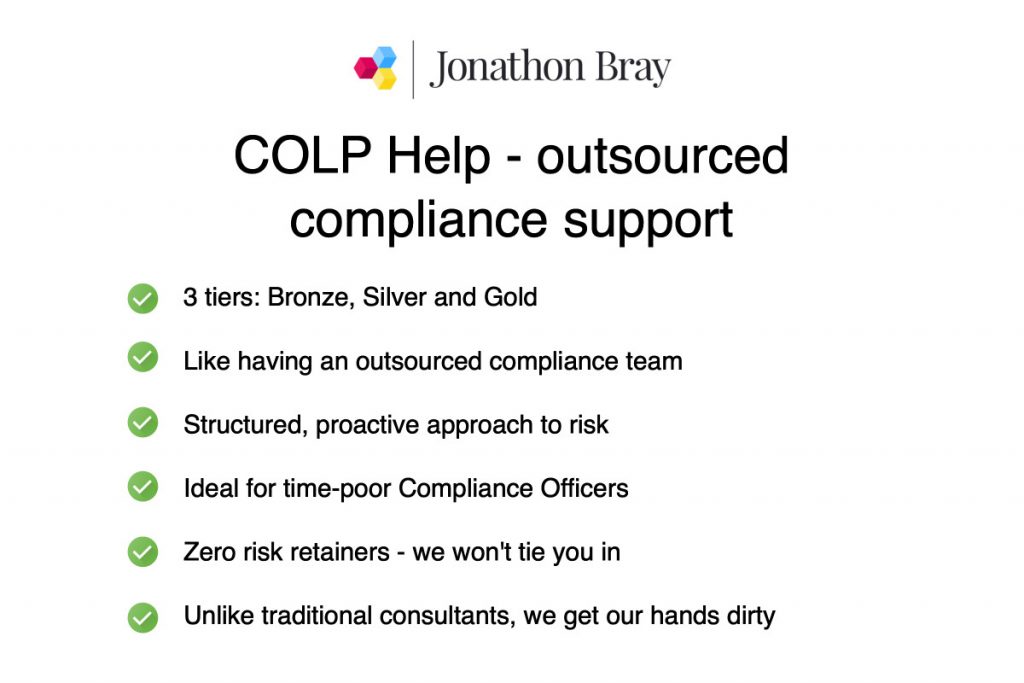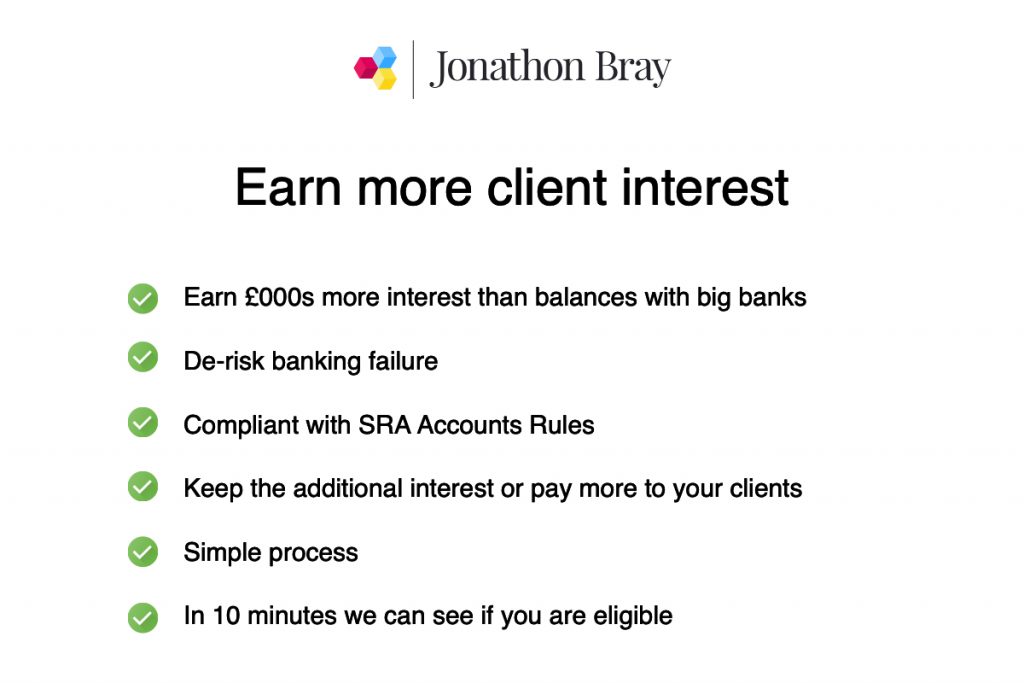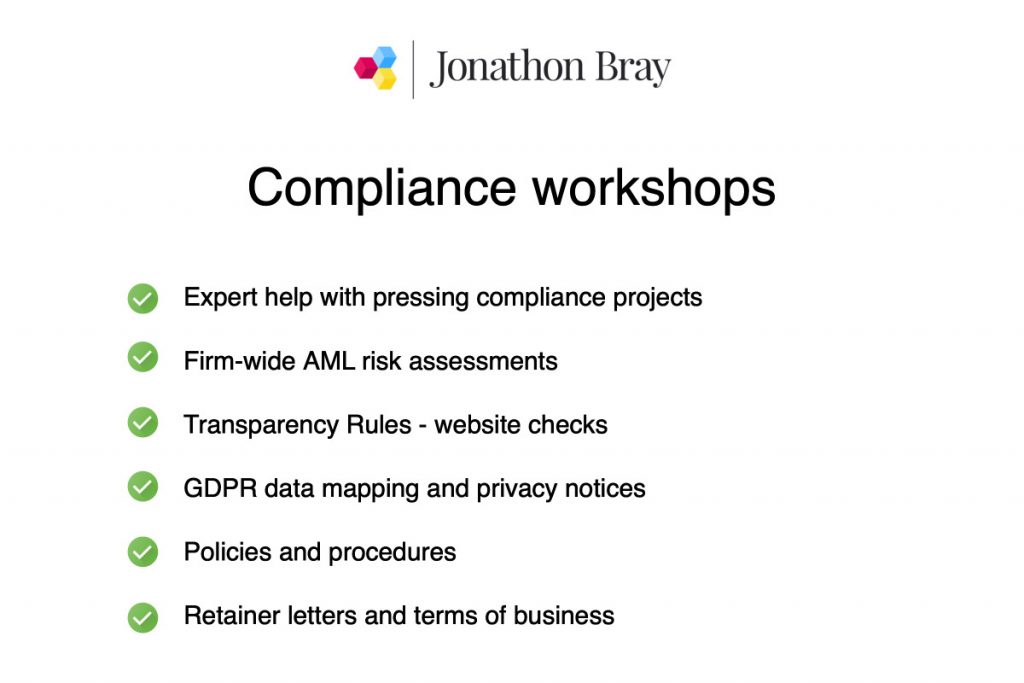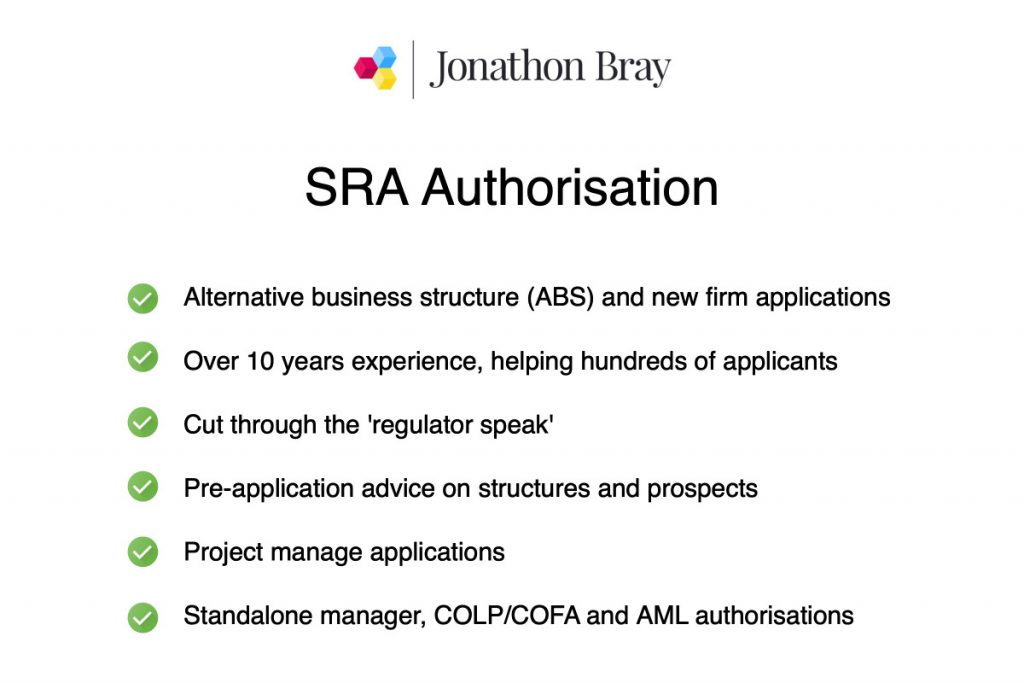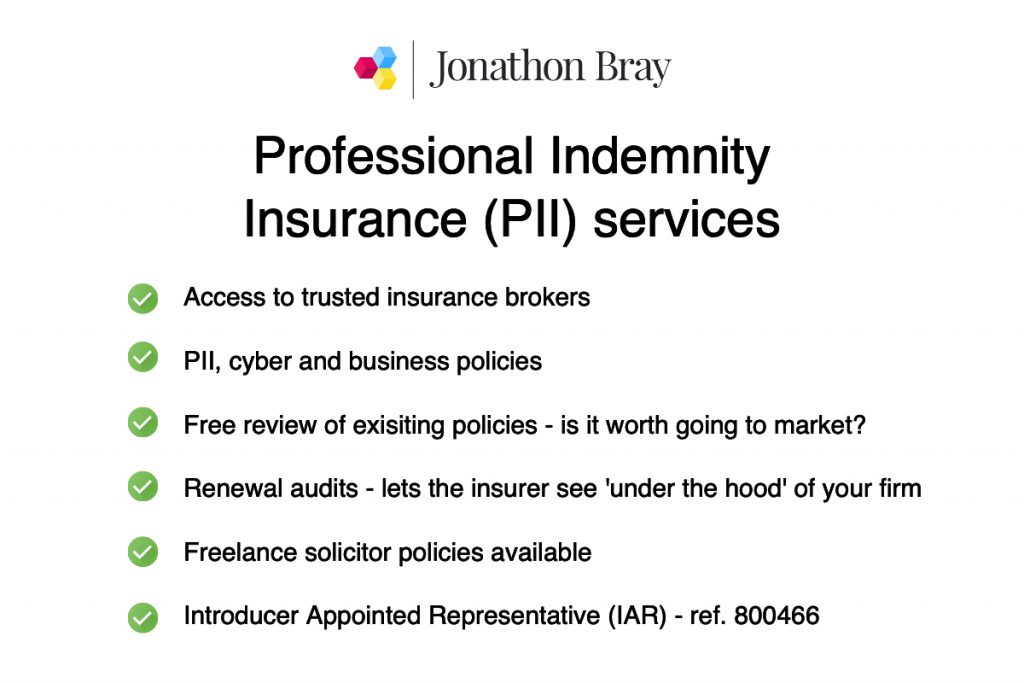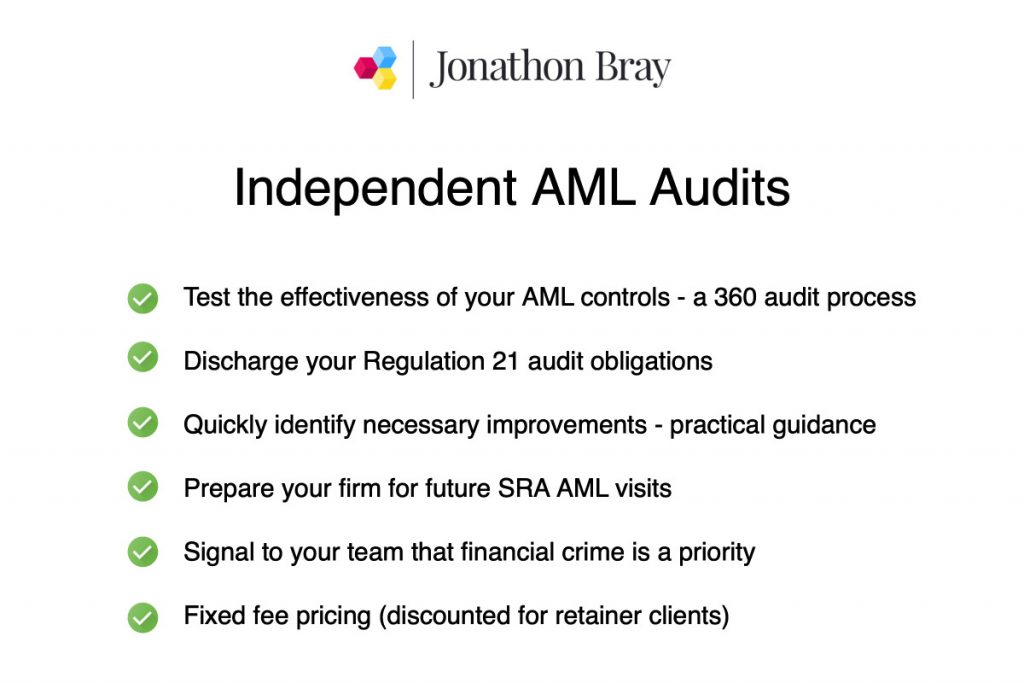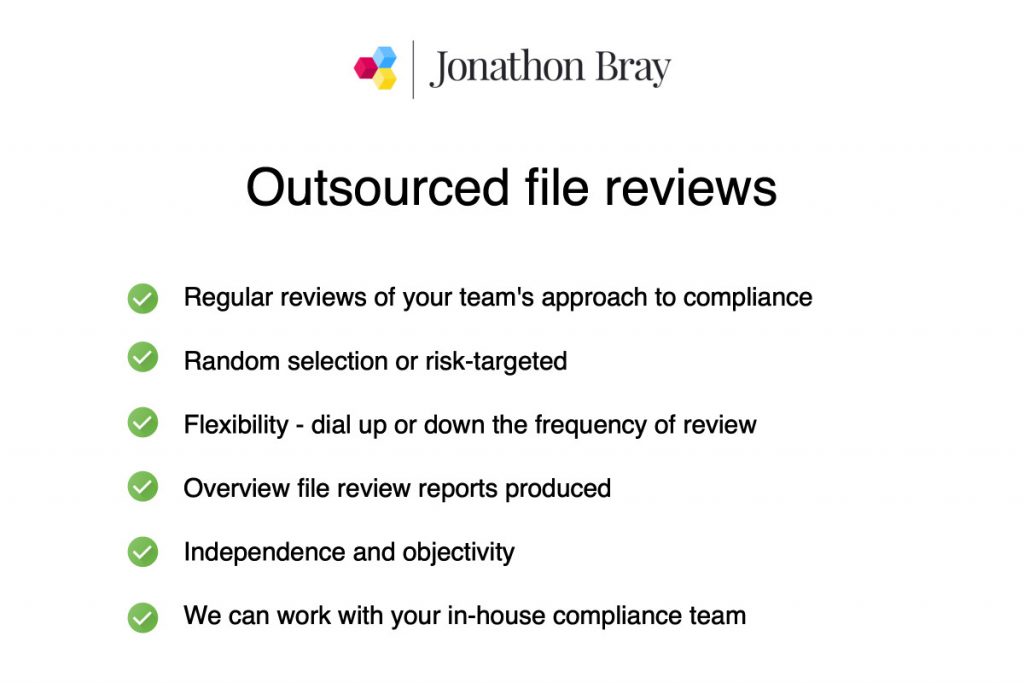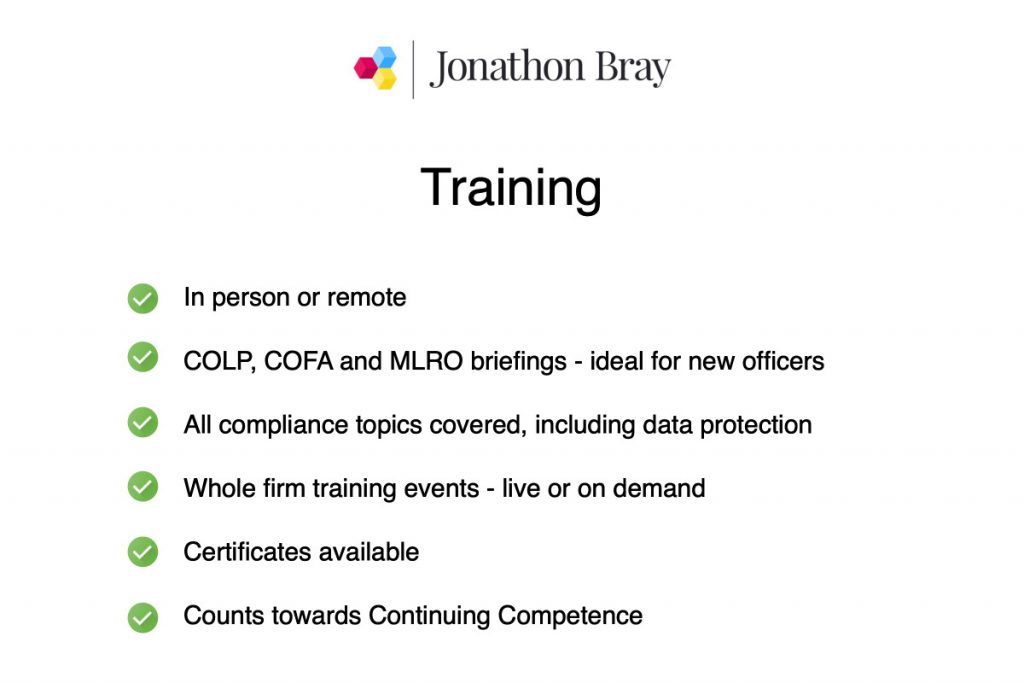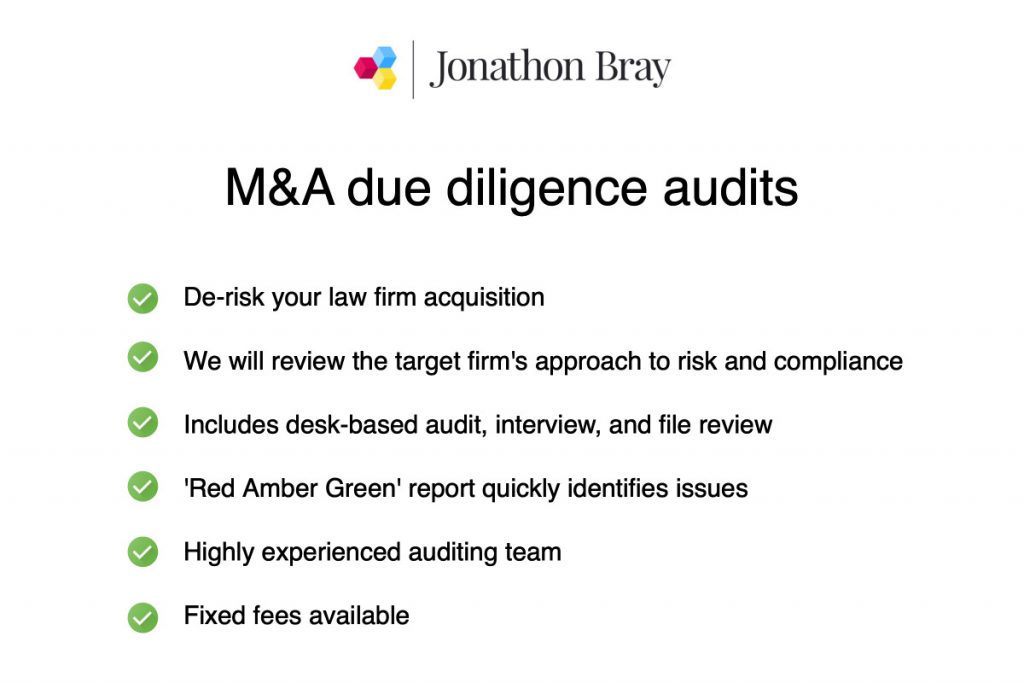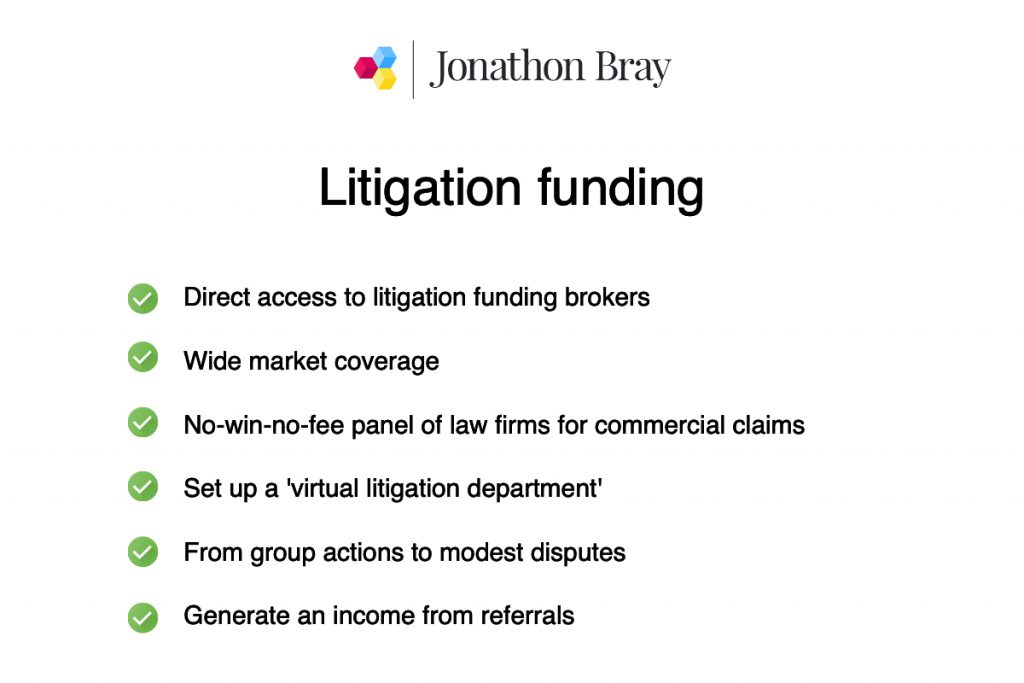Happy Friday and welcome to our latest COLP Insider newsletter, a curated compilation designed to navigate the complexities of never-ending regulation.
In this edition, we look at the intricacies of Suspicious Activity Reports (SARs) and the escalating consequences of drink driving offences within our profession. In case you missed it, you will also find articles about being the best COLP or MLRO you can be, and the huge AML fine handed out to a well-known law firm.
Sanctions compliance is rapidly climbing up the list of SRA priorities, so you won’t want to miss the latest guidance on sanctions risk assessments. We will be doing a webinar on this topic later this month.
Talking of webinars, you will find the link to the recording of last week’s roundup session (Looking back, looking forward) along with December’s session on client money.
There is also the usual list of interesting disciplinary decisions – these are real life examples of what not to do. (Only one firm fined for AML breaches this week!).
I hope you find the newsletter helpful – if you have any questions, comments or suggestions please email info@jonathonbray.com.
Warm regards,
Jon and the Team
Suspicious Activity Reports: 6 practical tips for law firm MLROs
Vigilance against money laundering and terrorist financing is not just a matter of ethical responsibility but a strict regulatory requirement. Suspicious Activity Reports (SARs) form the cornerstone of the legal sector’s contribution to the global fight against financial crime. This post will demystify SARs, setting out the legal framework and offering practical advice for law firm leaders and Money Laundering Reporting Officers (MLROs).
Drink driving offences have just become a lot more expensive for solicitors. Here’s why
In recent actions by the Solicitors Regulation Authority (SRA), drink-driving has become significantly more costly for solicitors, serving as a stark reminder of the regulator’s expected standards.
The cases of Richard Lunn, Piers King, and William Rawstron illustrate this shift, with hefty fines based on a percentage of their income, following convictions for driving under the influence. These disciplinary measures reflect the SRA’s commitment to upholding public trust and confidence in the legal profession, emphasising that personal conduct, even outside professional duties, can have severe professional and financial consequences.
ICYMI: Half-million pound lesson: Clyde & Co’s AML failure and the SRA’s wake-up call to law firms
In a landmark decision that has reverberated through the legal sector, Clyde & Co, a prominent international law firm, was handed a staggering £500,000 fine by the Solicitors Disciplinary Tribunal (SDT) for significant anti-money laundering (AML) compliance failures.
This penalty underscores the growing rigour with which the Solicitors Regulation Authority (SRA) is enforcing AML regulations and highlights crucial lessons for law firms across the United Kingdom.
ICYMI: How to be an effective law firm MLRO in 2024
In 2024, the role of the Money Laundering Reporting Officer (MLRO) and Money Laundering Compliance Officer (MLCO) in SRA regulated law firms is increasingly pivotal.
The SRA is increasingly aggressive in its approach to fining law firms for AML breaches, and has recently been rewarded with unlimited fining powers by the government.
The MLRO is at the forefront of combating financial crimes, particularly money laundering, which is a significant concern in the legal sector. The responsibilities of an MLRO are complex and demanding, requiring a deep understanding of legal and regulatory frameworks, as well as the ability to implement effective anti-money laundering (AML).
ICYMI: How to be a COLP in 2024
The Compliance Officer for Legal Practice (COLP) plays a crucial role in ensuring that their firm complies with the rules set by the Solicitors Regulation Authority (SRA) and other regulations applicable to law firms. Their responsibilities include overseeing compliance frameworks, managing risks, ensuring ethical conduct, and maintaining high standards of practice.
As regulatory frameworks become more complex, regulators get ever-bolder and technology evolves, the COLP is an increasingly pivotal role. It is certainly not to be taken lightly.
(See also 10 Things You Must Do as COLP.)
News and Guidance

SRA Updates
- Guidance- Sanctions regime firm-wide risk assessments – The SRA has published important guidance for law firms on assessing risks related to the UK’s sanctions regime, which has expanded significantly since the invasion of Ukraine in February 2022. The guidance emphasises the importance of firm-wide risk assessments, particularly for firms at higher risk, and outlines best practices for creating such assessments. Though not mandatory (yet!), they are strongly recommended.
The guidance document says that all firms need to be vigilant about transactions with sanctioned individuals or entities, highlighting the potential regulatory and criminal consequences of non-compliance. The SRA advice covers risk factors and best practices for identifying and mitigating sanctions risks, including the need for checks beyond client identity verifications mandated by the Money Laundering Regulations 2017 (MLR 2017)
More than 1,000 firms have received communications from the SRA highlighting the for sanctions risk assessments and the risks of poor compliance. The SRA’s outreach is framed as providing support to help firms identify clients in high-risk categories and ensure they are not inadvertently dealing with sanctioned entities. This move indicates a proactive approach by the SRA to bolster compliance amidst the complex and expanding sanctions landscape. The regulator also plans to conduct desk-based reviews and on-site inspections to test firms’ controls, underscoring the importance of having robust systems in place to manage sanctions risks.
If things follow a familiar path, these sanctions compliance audits could form the evidential basis for further warnings to the profession. Firms caught without sufficient sanctions controls in place could then be subject to automatic fines and unwelcome publicity.
Firms face significant challenges in complying with the SRA’s strict liability approach to sanctions compliance. This includes the apparent need for thorough client and counter-party checks against the UK consolidated sanctions list, regardless of whether these parties have their own legal representation. We covered that issue in this post.
Join us for a live webinar on this topic on 21 February (see below for details).
- Statement: Update on the Solicitors Regulation Authority investigation on the Post Office Horizon IT scandal – The SRA has provided an update on its investigation into the Post Office Horizon IT scandal, focusing on solicitors and law firms involved with the Post Office/Royal Mail Group between 2000 and 2015.
The investigation aims to ensure solicitors acted ethically and upheld the rule of law, amidst wrongful convictions of sub-postmasters based on faulty system data. Evidence is being gathered, including documents from the Post Office and the ongoing public inquiry, to determine if there was misconduct. Actions, including fines and practice restrictions, will be taken if solicitors are found to have fallen short of professional standards.
Law Society Updates
- Guide: Suspicious activity reports – The Law Society’s guide on Suspicious Activity Reports (SARs) outlines when and how legal professionals should report money laundering or terrorist financing activities to the National Crime Agency (NCA). It puts the spotlight on the Money Laundering Reporting Officer (MLRO) in identifying and reporting suspicious activities. The guide provides criteria for forming suspicions, details on submitting SARs, including requesting a defence against money laundering (DAML), and the consequences of failing to disclose. See also our blog How to be an effective law firm MLRO in 2024.
- Q&A What should I do if I receive a complaint from someone who is not a client? – When a solicitor receives a complaint from someone who is not their client, such as an unrepresented buyer in a conveyancing matter, they are generally not obliged to respond as per their internal complaints handling policy. This is because solicitors are typically required to address complaints made by their clients or prospective clients, with exceptions for complaints from beneficiaries.
- Q&A: Can I exercise a lien over a bankrupt client’s papers? – A solicitor has a general right to retain a client’s money, papers, or property until their costs are paid, known as exercising a lien. However, this right is significantly limited by the Insolvency Act 1986 when a client becomes bankrupt. A trustee in bankruptcy has the right to documents belonging to the bankrupt client, and may apply to the court for an order to compel a solicitor to disclose relevant papers.
- What’s changing: Economic Crime and Corporate Transparency Act – The ECCTA introduces significant reforms aimed at combating economic crime and enhancing corporate transparency. Key provisions include a new regulatory objective to tackle economic crime, reforms to Companies House to counteract fraudulent companies, measures to curb the misuse of limited partnerships, additional powers for seizing criminal crypto-assets, a new offence for failing to prevent fraud, and steps to address strategic lawsuits against public participation (SLAPPs). The act affects large organisations.
Other Updates
- LawCare: Dramatic increase in the number of people seeking support because of bullying at work – The LawCare 2023 Impact Report highlights a significant increase in people seeking mental health support due to workplace bullying, with a 14% rise in overall contacts for mental health assistance. Remarkably, reports of workplace bullying, harassment, or discrimination surged by 95%. LawCare highlights the need for law firms to foster environments that safeguard mental health and proactively combat bullying and harassment.
- LSB: Axiom Ince review to investigate regulation of ‘accumulator firms’– Legal Futures reports that the Legal Services Board (LSB) is conducting a review on the collapse of Axiom Ince, focusing on the SRA’s regulatory functions and its approach to law firm consolidators. This review aims to ensure public and professional confidence, identifying any necessary changes to SRA policies or procedures to prevent similar issues. The review will also consider the SRA’s policies on accumulator firms, assessing the risk and oversight of such firms and transactions. A report is expected to be published in spring 2024.
Compliance corner – real life Q&As

Can proceeds be sent to Executors’ personal account, or must there be a bank account that has been opened specifically for the distribution of the estate?
In most cases, the solicitor would use their client account to collect assets and distribute the estate under the executor’s instructions. That is not using the client account as a ‘banking facility’ as it is intrinsically linked to the legal work. It is a fundamental part of a solicitor’s practice.
If the firm does not have a client account, there are other options.
Although there is no direct rule against using the executor’s personal bank account, the solicitor will have to assess the risks associated with this solution. Will the estate money be safe? Are funds likely to get mixed up with the executor’s personal spending? How will ledgers and records be kept, and interest calculated? If there are multiple executors, do they all agree on and consent to the proposed account? Would it be in the clients’ best interests to instruct a firm with a client account?
Where there is no solicitor’s client account available, it will be much less risky and more transparent for all parties if a separate executor’s account is used. It is likely that you could only ever justify using an executor’s personal account in very simple, low risk scenarios.
Free webinars and recordings

Recording: Looking back, looking forward – our annual roundup of the main compliance issues of 2023 and what to look out for in 2024
Last week Rachael and Jon discussed the hot compliance topics of the past year, and what’s on the horizon over the next 12 months.
They covered:
- Automatic fines
- AML fines
- GDPR
- Law firm failures
- AML updates
- Sexual misconduct cases
- Cyber-security
- Compensation fund
- Insurance market
- Future changes
- …..and ran out of time!
Watch the recording – use password l5?psfHz
Recording: Unraveling the latest SRA Accounts Rules changes, and identifying client money risks and opportunities
We were thrilled to collaborate with Shieldpay, industry pioneers in Third Party Managed Accounts, for an in-depth exploration of the evolving landscape of client account management.
What we covered:
1. In-depth Analysis of Current Risks: Understand the complexities and pitfalls in holding client money.
2. Emerging Opportunities: How to leverage the rules to your firm’s advantage.
3. Third Party Managed Accounts Explained: A comprehensive look into why this might be the strategic shift your practice needs.
4. SRA Updates & Cases 2023: Stay ahead with the latest SRA rule changes and landmark cases impacting solicitors, although note that the SRA has now withdrawn its application to change the rules, pending the outcome of the Axiom Ince review.
Click here for the recording – use password DG=8*H&%
Click here for the full write up
Next session: The latest SRA sanctions guidance and what you have to do in response
February’s live webinar will be focused on the latest important SRA guidance on sanctions risk assessments. The guidance applies to all regulated firms (albeit some more than others).
The session will cover:
- An update on the current sanctions regime
- A comprehensive overview of the latest SRA guidance
- Practical implications
- Your live questions and answers
Save the date: Wednesday 21 February 2024, 12pm
Invitations to be sent out in the coming days (JBL clients get priority access).
Training resources: On-demand webinar archive
Contact us for access to our extensive back catalogue of recorded webinars. Topics include:
- Financial crime: LSAG, firm-wide risk assessments, client due diligence etc.
- Sanctions
- Use of client account as a banking facility
- Data protection
- Financial stability
- Conflicts and confidentiality
- SRA Transparency Rules
- Accounts Rules
- Employee Ownership Trusts (EOTs)
- Register of overseas entities
- Sexual misconduct and solicitors’ private lives
- Terrorist financing
- And more….
We also produce bespoke training webinars, live workshops for your team and COLP and COFA training.
SRA and SDT disciplinary decisions

- David Owen – rebuked for using “his Facebook account to publicly communicate content that was offensive, inappropriate and/or discriminatory”. A reminder that bringing the profession into disrepute outside of your practice is still a matter for the SRA.
- Darren Earnshaw – legal adviser “struck off” from practising in a regulated firm, after failing to tell a client (and his firm) about a summary judgment made against them. The summary judgment was obtained by the other side following the legal adviser’s failure to follow the court’s directions, and a claim for negligence followed. Always come clean when you make an error, don’t sit on it.
- Lee Kerr – law firm manager (not a solicitor) disqualified from the profession after misappropriating around £700,000 of client money during the process of a firm closure.
- Dominic Lowe – another non-solicitor removed from the profession for dishonesty, after having been found to have doctored bank statements and the firm’s case management system to make it appear that a property purchase was made in joint names, rather than one.
- Jack Grunhut – recently qualified solicitor struck off for dishonesty, after misleading his firm about loans received from clients and the existence of referral arrangements. SRA allegations of backdating documents and ineffective client due diligence were also successful.
- Gordon John Sewell – solicitor fined £750 for acting in a conflict of interest situation. He had accepted instructions to act for old clients who had a potential claim for negligence against him, relating to a past transaction. Matters were made worse when the solicitor asked the client to retract a “defamatory” complaint made to the SRA.
- Richard Lunn – SRA fines solicitor £13,836 following a drink driving conviction, the highest such regulatory fine to date. This was hot on the heels of a £10,105 fine issued to Piers King under similar circumstances. The regulator has recently changed the way it issues fines – the calculation now takes into account the regulated person’s income. The SRA also has increased powers to issue fines up to £25,000 (or more for ABS managers) without referral to the SDT. Partners and higher earners beware – this looks like it is going to be trend.
- William Joseph Rawstrom – also fined £4,308 following drink driving conviction.
- David John Goldsmith – fined £9,000 after forensic investigators found evidence of improper transfers from client to office account. Money was shortly replaced and no losses were reported.
- Petrou & Co – firm fined £4,240.57 for AML breaches: failing to have compliant risk assessments and policies, and not conducting thorough source of funds checks.
- Simpson Duxbury – firm fined £5,899 for allowing almost £600,000 of residual client balances build up. This is a problem in a lot of firms, and as soon as the reporting accountant puts in a qualified report, the SRA will get interested.
What we do – contact us for a chat
